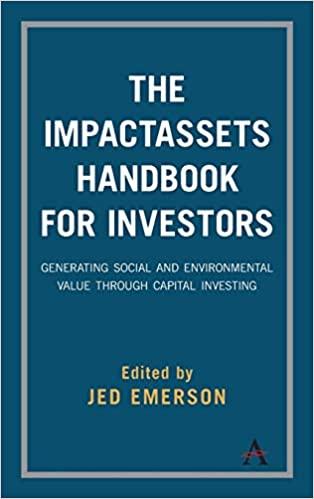Question
5. Henry Morton has an initial wealth endowment of $1,200. He considers the future to be risky but completely characterized by only two possible states.
5. Henry Morton has an initial wealth endowment of $1,200. He considers the future to be risky but completely characterized by only two possible states. Henry has the opportunity to invest in two securities S and T for which the initial prices are S(1) = $10 and T(1) = $12. The payoffs to these securities are:
State | Future Prices Security S | Future Prices Security T
1 | $10 | $21
2 | $20 | $18
(a) If Henry buys only security S, how many units can he purchase?
(b) If Henry buys only security T, how many units can he purchase?
(c) What will be his final wealth in both cases and in each state?
(d) Suppose now Henry can issue as well as purchase securities. However, he must be able to meet all claims under the occurence of either state (terminal wealth can be zero, but he cannot renege on any promises). Now how many units maximum of S could Henry sell to buy T, and conversely, how many units maximum of T could he sell to buy S?
(e) What now would be Henrys terminal wealth in both cases and in each state?
Step by Step Solution
There are 3 Steps involved in it
Step: 1

Get Instant Access to Expert-Tailored Solutions
See step-by-step solutions with expert insights and AI powered tools for academic success
Step: 2

Step: 3

Ace Your Homework with AI
Get the answers you need in no time with our AI-driven, step-by-step assistance
Get Started


